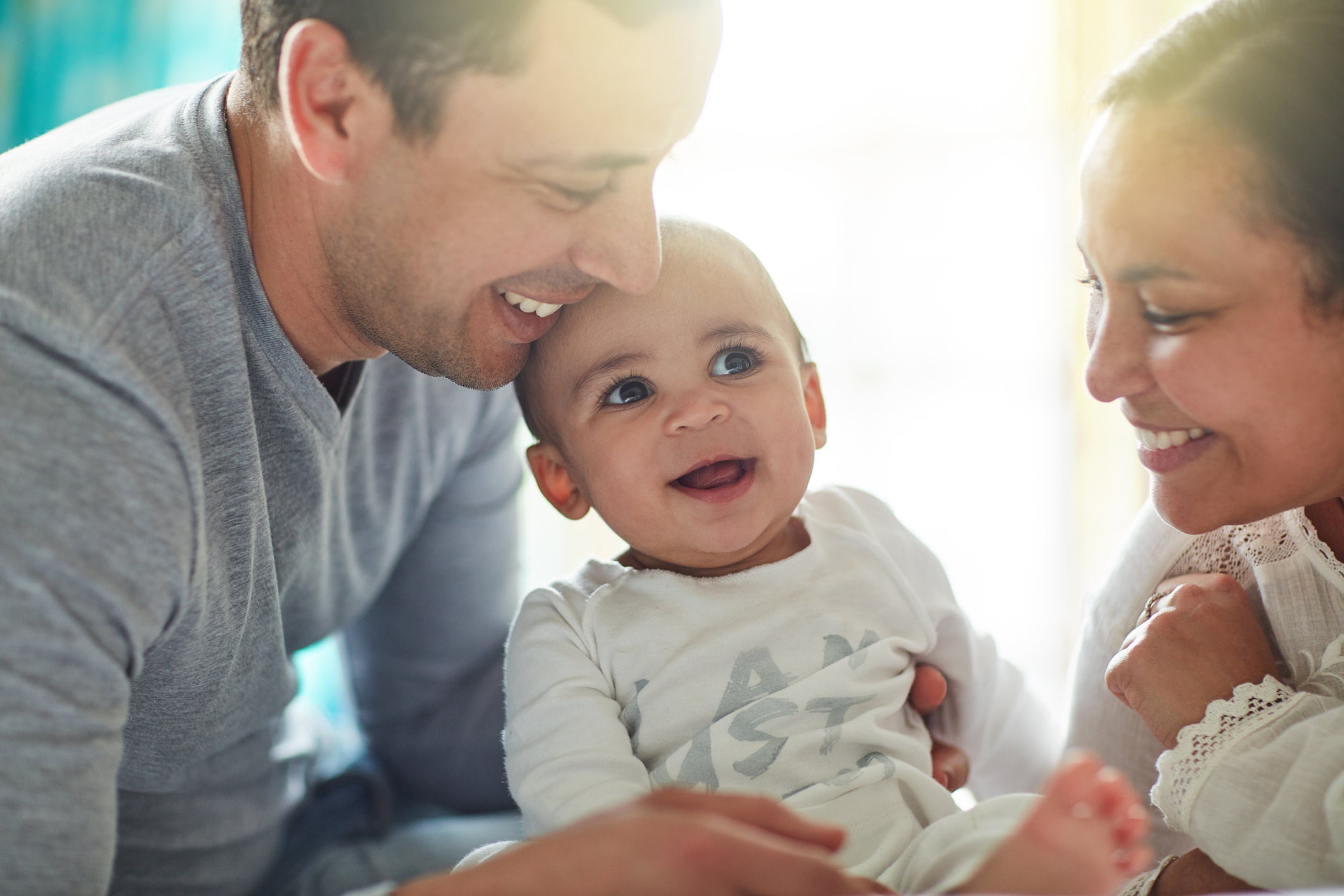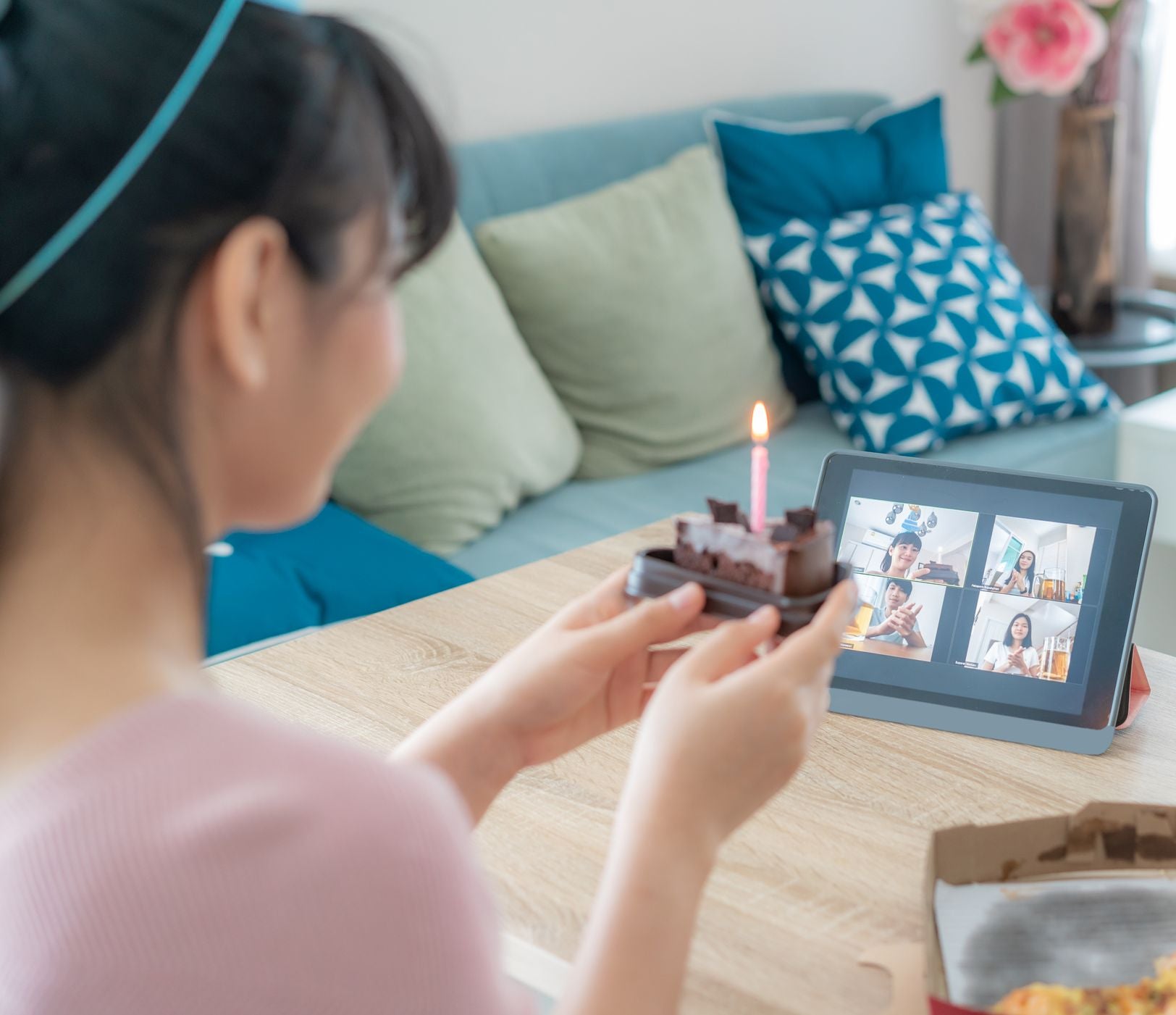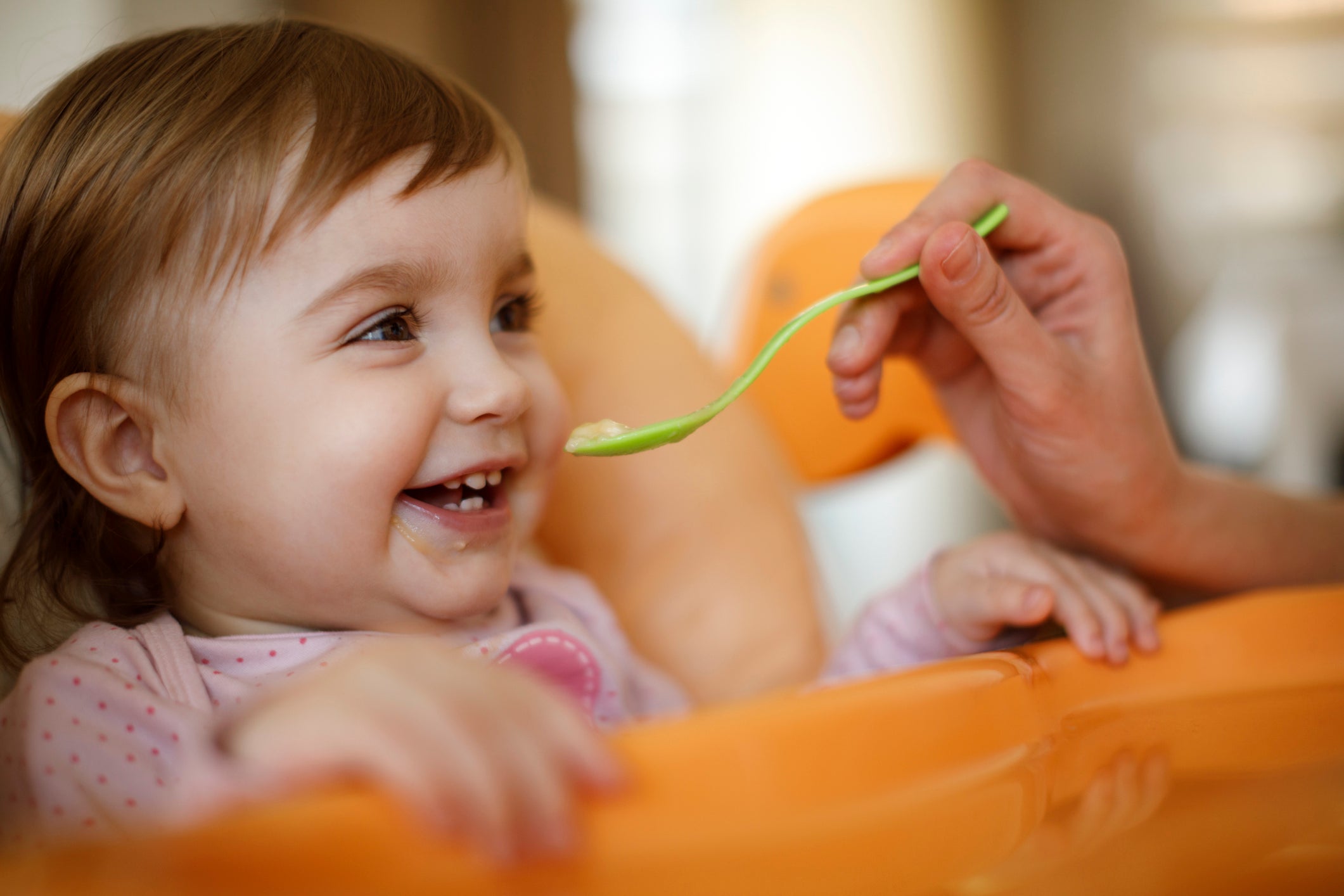-
How to Protect Your Baby from COVID19

COVID-19 has made this year frightening. We know that for adults to say safe, socially distancing and wearing face coverings are important. We agonize over whether to send children back to school, wondering if they’ll be able to understand the need to stay away from others. But what about babies and toddlers? How can you protect little ones from COVID-19?
- First, let’s address face coverings. People over age two are advised to wear a face covering or mask when in public. As you probably know, this is primarily to protect other people. Wearing a mask even if you don’t suspect you have the virus can help keep those around you from getting it. Obviously, this applies to small children as well; when they’re surrounded by adults wearing masks, they’re protected from infection.
- But why shouldn’t toddlers themselves wear masks? First, their smaller airways make it harder for them to breathe through cloth. Additionally, masks can have strings and elastic pieces that could cause a young child to choke. Finally, little children are likely to try to remove the mask, which will lead to a lot of face touching, and this can spread the virus.
- Can kids even get infected with COVID-19? While most cases occur in adults, children can be infected. For most kids, the virus causes a mild illness, and in some there are no symptoms at all. However, some babies and children have gotten very sick from the virus, so while you can’t protect them by having them wear masks, it’s important to protect little children in other ways.
- Some basic safety measures can help keep the virus at bay.
- Keep your family at home and away from others as much as possible, only going out when it’s necessary.
- Whether you’re at home or out and about, avoid people who are sick.
- Wash your hands well and often and teach others in your family to do the same. Wash your hands thoroughly when you go into your home after being out, before handling your child, and before feeding your baby.
- Try not to touch your face.
- Clean all surfaces that people touch a lot, like doorknobs, cellphones, and countertops.
- If you’re sick, wear a face covering at home, limit contact with your child, and sneeze or cough into a tissue rather than your hands.
- When your baby is in an infant carrier, place a blanket over the carrier while it’s in your view, making sure the blanket doesn’t touch the baby. Wipe down your stroller or carrier when you get home.
At the Center for Vasectomy Reversal, we love helping people build their families. Under the direction of Dr. Joshua Green, our team provides state-of-the-art treatment for men who need a reversal of their vasectomy or have other fertility concerns. To learn more, contact us through our website, or call 941-894-6428 for a free consultation.
-
How to Throw a Baby Shower During the Coronavirus Pandemic

The COVID-19 pandemic has really put a damper on social interaction this year! If you or someone you love is having a baby, though, it’s still important to celebrate the impending arrival. How do you safely throw a shower while a pandemic is raging? We’ve got several great ideas.
- Have a “Drive-Thru Sprinkle”. A drive-by baby shower is the easiest option for local guests. Arrange a time for a car parades, and have guests decorate their cars and drive by to drop off gifts. The mama-to-be can sit on a comfy chair and enjoy receiving well wishes and packages, and guests can pick up individually packaged cupcakes and party favors. The organizer can even decorate the lawn ahead of time with balloons, yard signs, and fresh flowers.
- Start a meal train. Especially for couples who don’t want a traditional shower, bringing food after the baby is born can be a great gift. Let people select nights to drop off dinner and use a free service like Meal Train to organize it.
- Have a game day. You could either host a virtual game party on a meeting platform like Zoom, or you could use an app like Bunch or a site like Kahoot to get a group together to play. Kahoot even create a trivia game with questions about the parents and the coming baby. Send virtual gift cards to the winning guests for prizes.
- Host a virtual shower. Just as with meetings, classes, and other gatherings, showers can easily be held online. Ahead of time, the host can send decorations, games, and snacks to the mom-to-be, and snacks, favors, and games to the guests. Choose a platform like Zoom, Skype, or Google Hangouts, and plan your party to fit within the allotted time frame. The mom can even give people a virtual tour of the nursery, so guests can enjoy the décor!
- Send gifts instead of bringing them. Online shopping is something most people are doing right now anyway and picking up something for baby is fun and easy. Amazon and other sites make it easy for parents to register for things they want and need for the new little one.
- Delay until a safer time. While it’s fun to have a shower before the baby arrives, it’s also fun to meet the new arrival in person! By planning a welcome party instead of a shower, you can do it when things are safer, and celebrate with the newly created family.
Things look a little different this year, but there are still plenty of ways to welcome a new baby. At the Center for Vasectomy Reversal, we love helping people build their families. Under the direction of Dr. Joshua Green, our team provides state-of-the-art treatment for men who need a reversal of their vasectomy or have other fertility concerns. To learn more, contact us through our website, or call 941-894-6428 for a free consultation.
-
When to Start Weaning Your Baby Off Baby Food

When babies are born, it’s easy enough to feed them. Breast or bottle, on-demand or on a schedule, and that’s pretty much the extent of the decision-making process. Once babies can sit up and hold their heads up on their own, you can start introducing pureed foods one at a time. As they grow, though, it gets a little more complicated. How do you know when it’s time to wean your little one from pureed baby food and start solids? We’ve got some useful advice.
Six months is typically the age at which babies start pureed foods. Be sure to offer a variety of foods, one at a time, because there’s evidence that this can help reduce the risk of allergies. As your child eats more foods, he or she will take less milk or formula. From pureed foods, you’ll move to mashed foods, then chopped, then small bites and finger foods.
Moving away from jarred foods is important because, although pureed foods and solids may be nutritionally equal, whole foods are better for a child’s development. Children need to learn to adapt to new things, and as they grow and learn to self-feed, they’ll be better able to develop the natural sense of appetite that will be important throughout their lives. By about the age of two, most healthy, typically developing children can eat the same foods as the rest of the family.
Of course, care must be taken to keep your toddler from choking. Keeping the food soft and not circular is part of preventing choking hazards. Find ways to make your toddler’s food finger-friendly, cutting it into small bites the child can pick up and chew. Pizza can be cut into small squares, soft fruit, soft cooked vegetables, or fully cooked eggs can be placed on the child’s tray to offer practice for finger feeding, and bread can be sliced into strips.
Use good practices to help your child develop good eating habits. Make sure you’re eating the same healthy fruits and vegetables you’re stressing for your child. Don’t cater to picky eaters by making different meals for different family members, but don’t be too strict about finishing meals, either. The important thing is to frequently expose your child to a variety of healthy foods. Allow children to serve themselves as much as is reasonable, and don’t insist on large portions. Set clear expectations, gently guide your children into eating healthy foods, and help them learn to trust their own appetites.
There are few things more rewarding than building a family and watching your little ones grow. At the Center for Vasectomy Reversal, we love helping people build their families. Under the direction of Dr. Joshua Green, our team provides state-of-the-art treatment for men who need a reversal of their vasectomy or have other fertility concerns. To learn more, contact us through our website, or call 941-894-6428 for a free consultation.
-
Should you put pregnancy on hold because of COVID19?

The COVID-19 has changed a lot of plans for a lot of people. Schools and businesses have closed, gatherings have been cancelled, and many people are quarantining at home. If you’ve been trying to start a family, should that plan be changed as well? The decision about whether or not to put your pregnancy on hold during the pandemic is multifaceted and, ultimately, deeply personal and subjective.
It’s important to acknowledge that there’s no right answer to this question. Everyone family’s circumstance is different, and each couple has to decide for themselves when it’s the right time to have a baby. There’s not even really a scientific consensus on this issue. There are, however, a few different factors to consider.
- First, consider your age. If you’re young and have plenty of time to get pregnant, there may be no rush to go ahead and do it now, during this uncertain time. If you’re nearing the end of your childbearing window, however, it may be worth pressing ahead.
- Think about what you do for a living. If you work from home, there may be very little risk of you contracting the virus. If you’re working in a high-risk setting, however, this may not be such a good time. Even if you’re not on the front lines of the virus, if you’re the primary breadwinner and your employer won’t allow you to work remotely, you may consider waiting to get pregnant.
- What are your risk factors? If you’ve got a history of high-risk pregnancies, or if you have underlying medical conditions that put you at higher risk of contracting COVID-19, you should not consider pregnancy at this time. It’s important to discuss your risk factors with your doctor, so that you can make an informed decision.
- The pandemic is limiting medical care. Many medical practices are moving to virtual or telephone visits, and this is not ideal for prenatal care. Further, reallocation of medical resources may limit your access to care during your pregnancy. Doctors are restricting elective procedures, and this applies to fertility treatments as well. Back in March, the American Society for Reproductive Medicine (ASRM) issued new guidelines restricting assisted reproduction, so while you can still become pregnant naturally, your other options are limited.
Here’s another question: does COVID-19 pose risks to the pregnancy or the baby? The answer is not entirely clear. There have been some small studies indicating the babies can contract COVID-19 from their mothers in utero. However, the babies studied all recovered quickly, as the virus seems to typically impact small children less severely than adults.
At the Center for Vasectomy Reversal, we love helping people build their families. Under the direction of Dr. Joshua Green, our team provides state-of-the-art treatment for men who need a reversal of their vasectomy or have other fertility concerns. To learn more, contact us through our website, or call 941-894-6428 for a free consultation.
Recent Posts
Popular Posts
categories
- Uncategorized
- Sperm Retrieval
- vasectomy reversal
- Emergency
- Dr. Green
- sperm count
- fertility
- male infertility
- MESA
- medical care
- low sperm count
- IVF
- male fertility testing
- anesthesia
- pregnancy
- sperm aspiration
- semen analysis
- post-vasectomy pain syndrome
- infertility
- VE
- anti-sperm antibodies
- older dad
- general anesthesia
- gender reveal party
- post-operative infections
- baby name
- parent
- baby's first year
- fertilization process
- spinal anesthesia
- ACS Fellow
- nutrition tips
- concierge-level care
- fertility planning app
- azoospermia
- out-of-town patients
- V-V
- post-vasectomy reversal
- conceiving
- vasectomy
- vasoepididymostomy
- smoking
- sperm quality
- baby registry
- infographic
- surgical care
- surgical consultation process
- prostate cancer
- baby gender
- family time
- COVID
- Baby Shower
- Child Care
- Halloween Costume Ideas for Babies
- Halloween
- Halloween Safety Tips
- Celebrity Infertility Spotlight
- Postpartum
- testosterone
- Father's Day
- Father
- Men's Health
- Thanksgiving
- Pregnancy Announcement
- Parenting Tips
- Sperm
